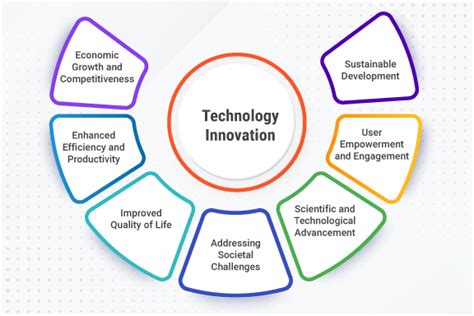The role of technology in the federal government is rapidly evolving, and it's crucial to stay informed about the latest innovations and solutions. As we celebrate Federal Tech Day, we'll delve into the most significant advancements and explore how they're transforming the way government agencies operate.
With the increasing demand for digital transformation, federal agencies are adopting cutting-edge technologies to improve efficiency, enhance citizen engagement, and drive innovation. From cloud computing to artificial intelligence, we'll examine the most impactful technologies and their applications in government IT.

Cloud Computing: A Game-Changer for Federal Agencies
Cloud computing has revolutionized the way federal agencies manage their IT infrastructure. By moving to the cloud, agencies can reduce costs, increase scalability, and improve flexibility. Cloud computing enables agencies to quickly deploy new applications and services, reducing the time and resources required for traditional on-premises infrastructure.
For instance, the U.S. Department of Defense (DoD) has migrated many of its applications to the cloud, enabling faster deployment and improved collaboration among teams. The DoD's cloud strategy has also enhanced security, with built-in compliance and governance features.
Benefits of Cloud Computing for Federal Agencies
• Reduced costs: Cloud computing eliminates the need for upfront capital expenditures and reduces operational expenses. • Increased scalability: Cloud resources can be quickly scaled up or down to meet changing demands. • Improved flexibility: Cloud computing enables agencies to deploy new applications and services rapidly.

Artificial Intelligence: Enhancing Citizen Engagement and Services
Artificial intelligence (AI) is transforming the way federal agencies interact with citizens and deliver services. AI-powered chatbots and virtual assistants are being used to provide 24/7 support, answering frequent questions and helping citizens navigate complex government processes.
The U.S. Department of Veterans Affairs (VA) has implemented an AI-powered chatbot to help veterans access benefits and services. The chatbot uses natural language processing to understand and respond to user queries, reducing the need for human intervention.
Applications of Artificial Intelligence in Government
• Chatbots and virtual assistants: AI-powered chatbots can provide 24/7 support and help citizens navigate complex government processes. • Predictive analytics: AI can analyze large datasets to identify trends and patterns, enabling data-driven decision-making. • Process automation: AI can automate repetitive tasks, freeing up staff to focus on higher-value activities.

Cybersecurity: Protecting Federal Agencies from Threats
Cybersecurity is a top priority for federal agencies, which are vulnerable to cyber threats and attacks. The U.S. government has implemented various measures to enhance cybersecurity, including the use of advanced threat detection tools and encryption technologies.
The Department of Homeland Security (DHS) has launched the Cybersecurity and Infrastructure Security Agency (CISA) to protect federal agencies from cyber threats. CISA provides threat intelligence and incident response services to help agencies respond to cyber incidents.
Best Practices for Federal Agency Cybersecurity
• Implement advanced threat detection tools: Use machine learning and AI-powered tools to detect and respond to cyber threats. • Use encryption technologies: Encrypt sensitive data to protect it from unauthorized access. • Conduct regular security audits: Identify vulnerabilities and weaknesses in agency systems and networks.






What is Federal Tech Day?
+Federal Tech Day is a celebration of the latest innovations and solutions in government IT.
How is cloud computing used in federal agencies?
+Cloud computing is used to reduce costs, increase scalability, and improve flexibility in federal agencies.
What are the benefits of artificial intelligence in government?
+Artificial intelligence can enhance citizen engagement, improve services, and automate repetitive tasks in government.
